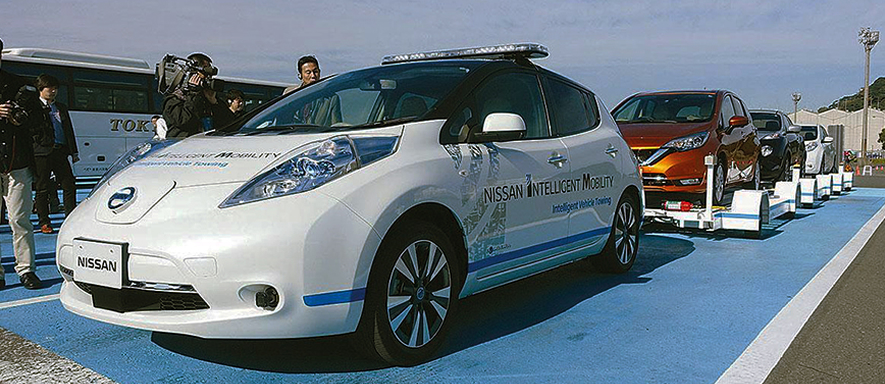Japanese car manufacturing giant Nissan and its software gaming partner DeNA has announced that it plans to commence the public pilot of its self-driving ride-sharing service in Japan early next year. The disclosure represents the latest collaboration between a global car manufacturer and a technology firm that is leveraging automated driving technology into new mobility solutions.
Representatives from Nissan and DeNa confirmed that they would conduct an intensive public test over a period of two weeks in Yokohama in March - that will allow riders to use an app developing by the software gaming company which summons self-driving versions of Nissan’s Leaf electric cars to travel to pre-mapped destinations and pay fares.
In addition to this, it has emerged that both entities have been conducting tests of their system which is entitled ‘Easy Ride’ since announcing their partnership earlier this year, they’ve declared that these are merely the first steps in their primary mission to launch a full-service, self-driving ride-sharing service in the country in the early 2020s.
Industry analysts have claimed that it is now clear that cars have moved from scale to scope in relation to selling cars, a step necessary in order to ensure survival in an industry that is quickly being transformed by new service. US colossus GM is applying its expertise in automated driving functions for mass-markets vehicles to develop mobility services.
The hugely lucrative ride-sharing or ‘pay-per-ride’ market is also becoming a huge battleground between automakers and technology firms. Uber, Alphabet and Google are now embroiled in a battle to secure market dominance in the sector which will fundamentally alter the demand for car ownership.
However, regulatory obstacles remain the biggest challenge in the pursuit of autonomous vehicles in both personal and public transportation, despite all of its benefits. Currently, the vast majority of global jurisdictions does not prohibit self-driving vehicles to operate on regular roads without a driver.
In Japan, Nissan and DeNA will face stiff competition from Japanese robotics maker ZMP Inc, which is working with a Tokyo taxi operator to develop a self-driving taxi service that it aims to deploy in time for the 2020 Tokyo Olympics.
In addition to this, DeNA has been trialing self-driving services across the country, including shuttle buses for elderly residents in rural communities which are struggling with fewer bus and taxi services as the country’s population ages and shrinks.






